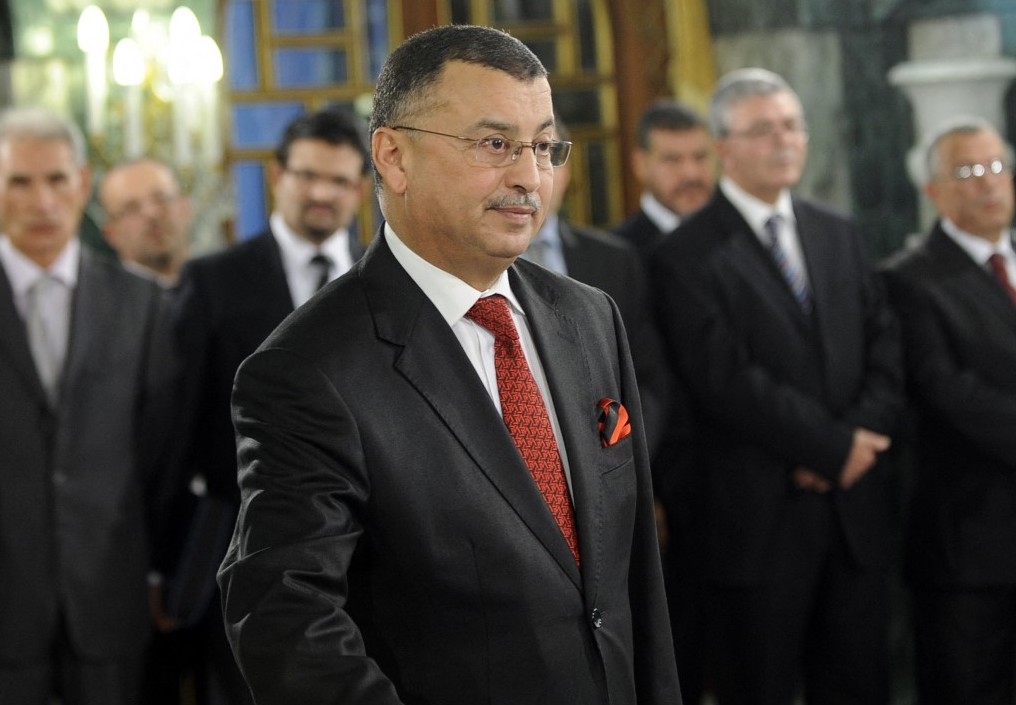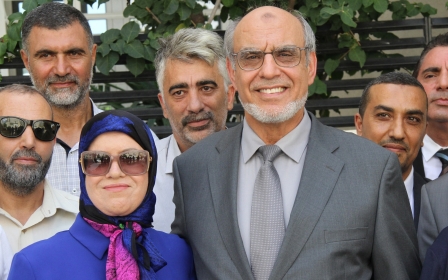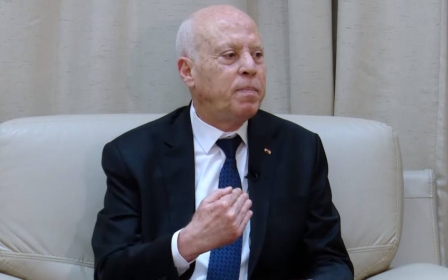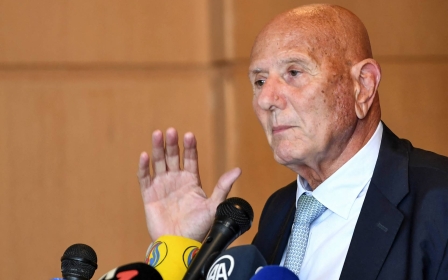Tunisia: Military court sentences prominent lawyer to one month in prison

A Tunisian military court has sentenced lawyer Abderrazak Kilani, the former Bar Association chairman, to one month in prison on charges denounced by his defence as political.
Kilani's sentence comes amid heightened opposition to President Kais Saied's power grab, with thousands protesting in Tunis on Sunday to demand the restoration of democracy and a reversal of the president's "coup".
Lawyer Samir Dilo, a member of Kilani’s defence team, said the Permanent Military Court of First Instance sentenced his client to a one month suspended sentence.
Dilo pointed out that the verdict was made against the backdrop of Kilani’s work as a lawyer for the opposition politician Noureddine Bhiri, deputy head of the Ennahda movement, after Bhiri was detained in hospital in December.
Kilani was detained on 2 March after a verbal exchange he had with security forces who barred him from visiting Bhiri, a former justice minister. Kilani was released three weeks later, but has since been charged with “disturbing the public order, insulting state officials, and obstructing the work of others,” according to Amnesty International.
New MEE newsletter: Jerusalem Dispatch
Sign up to get the latest insights and analysis on Israel-Palestine, alongside Turkey Unpacked and other MEE newsletters
Bhiri was released days after the arrest of his lawyer, after being detained at a hospital in Tunisia for months, in circumstances denounced by Human Rights Watch and the United Nations.
In video comments after his trial earlier this month, Kilani said he had been "punished with an unjust trial" due to his opposition to Saied's measures.
Saied's power grab
On 25 July last year, President Saied announced his controversial measures, revealed by Middle East Eye two months earlier, including the suspension of parliament and the sacking of the prime minister.
Saied also shut down the country's independent National Anti-Corruption Authority and sidelined the Independent High Authority for Elections. He later dissolved the Supreme Judicial Council - the body that oversees judicial independence - and granted himself control over the selection and promotion of judges.
The president also initiated an online public consultation before drafting a new constitution that he said will be put to a referendum in July 2022, followed by parliamentary elections in December.
Saied's measures have been rejected by the majority of political forces, including Tunisia's powerful labour union, the UGTT, but he has launched a crackdown on the opposition and their protests. Many have faced trials before military and civilian courts and given jail sentences for charges denounced by rights groups as politically motivated.
Last week, Saied appointed new members to the election commission who are widely considered supportive of his power grab, in a move critics say will cast doubt on the country's electoral integrity.
Later, he suggested he will not accept the presence of foreign election observers in his country for votes planned for this year.
Middle East Eye delivers independent and unrivalled coverage and analysis of the Middle East, North Africa and beyond. To learn more about republishing this content and the associated fees, please fill out this form. More about MEE can be found here.




